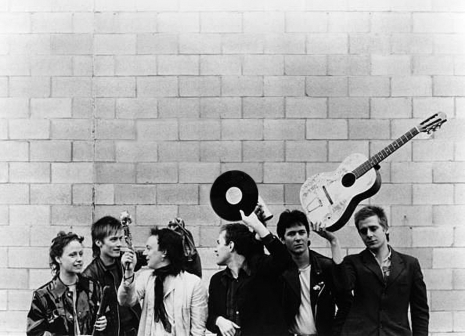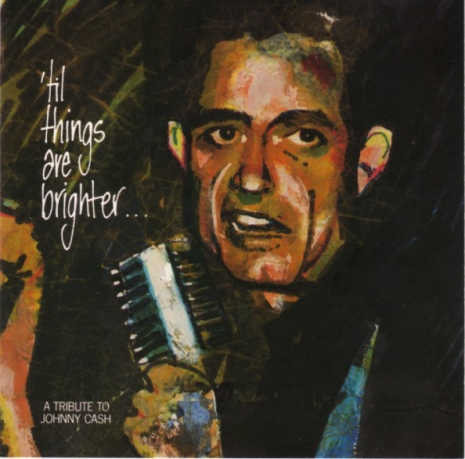
The Mekons
On October 6, 1978, on BBC Radio One, John Peel touted a TV program on which he appeared, to air the next week, on October 12—exactly 39 years ago last Thursday, as it happens. Here’s what Peel said: “The UK Subs are on Omnibus on next Thursday evening on BBC-1 television, along with the Mekons, the Slits, Jim Pursey, Alternative TV, the Desperate Bicycles, and the playlist committee among other things, and my good self, seen heading a football with more skill than I bet you imagined I had.”
Omnibus was a popular arts program that was in existence from 1967 through 2003. Peel’s documentary was titled “The Record Machine.” Recently the BBC Archive Twitter feed dropped a fascinating supercut from the doc featuring prominent punk bands discussing, often with great subtlety and insight, some of the issues bands were facing as to the ethical status of promotion, publicity, and product.
As the punk movement moved past its initial impact, bands had to confront some basic questions about the meaning of touring and releasing albums—in short, adopting punk as a career—when the underpinnings of the movement included a rejection of established modes and a commitment to the community of downtrodden and frustrated youth. As astute in the interviewer’s seat as he is as a DJ, Peel consistently presses the bands to explain where their heads are at in terms of signing contracts, releasing “product,” touring, and generally balancing the conflicting aims of gratifying fans, preserving artistic integrity, and making some goddamned money!

The Slits
In Leeds, Mekons manager Mick Wixey snarks that “we’re not on the verge of retirement yet” and registers the injustice of having to make an impact in London in order to get signed to a label. Jimmy Pursey of Sham 69 ruminates on the necessity of allying oneself with an established label in order to finance the process of touring before asserting that Sham 69 saved punk. Ari Up of the Slits whips a soccer ball at Peel’s head just when he’s trying to ask whether the Slits feel any political commitment to working with smaller labels (Viv Albertine says “nah”).
Mark Perry of Alternative TV—who earlier had put out one of the first punk zines, Sniffin’ Glue—relates how bummed out he was when the Clash signed with CBS and registers his disgust at the “two pound fifty” the Buzzcocks were charging for tickets at the time. The most epigrammatic of the bunch might be the UK Subs’ Charlie Harper, who reports that “we done a gig for fourteen pound—and we lost two quid.” Ouch.
More after the jump…






